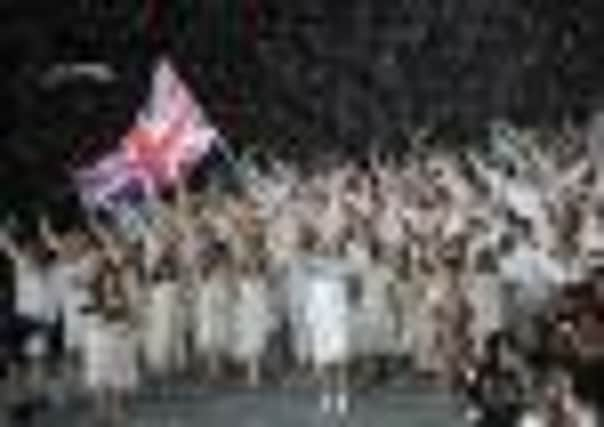Ewan Crawford: No time to meddle with our national identity


When I first took up a position at a university I found the dominant academic view of the nation state as basically an imagined or invented concept somewhat disconcerting.
I say disconcerting because that was a rather uncomfortable discovery for someone who had recently completed a term as strategist for the SNP, a job for which a belief in the idea of a Scottish nation state tends to come in handy.
Advertisement
Hide AdAdvertisement
Hide AdEven worse, enjoying the tales of Bruce and Wallace as much as the next nationalist, to learn that nations were said to have been around for only a couple of hundred years or so was pretty disappointing.
Fortunately, as in most academic debates, there are those who challenge the orthodoxy (in this case what is called the “modernist” school of nationalism) and not unsurprisingly I concluded these arguments were more convincing.
But whatever views others may have about the origins of nations, the Olympic Games are a vivid reminder of the enduring strength of nationalist feeling.
The very existence of the nightly medals count, and the increasing desperation for Britain to start collecting a few, is a demonstration of how committed people are to a sense of national belonging.
How else can we explain the four-yearly mass interest in the details of the keirin or kayaking which for most people would be classified as minority pursuits the rest of the time?
Having watched a brilliant BBC documentary about the incredible commitment of the British sprint cyclist Victoria Pendleton I will be on the edge of my seat for an event I had barely heard of a few weeks ago and on Saturday I developed a sudden interest in the women’s 400 metre individual medley because of the presence of Inverurie’s talented and gutsy Hannah Miley.
Away from the track and the pool, the Olympics have also provided an outing for what are often deemed to be national characteristics and values.
The extraordinary reaction to Danny Boyle’s equally extraordinary opening ceremony was notable for the debate it provoked about Britishness.
Advertisement
Hide AdAdvertisement
Hide AdOne unremarked aspect of this Britishness, as presented by some commentators, seemed to be an obsession with what people in the US think.
There was a great deal of interest in how the US television rights-holder NBC was covering the event and in the apparently factual statement that the Americans won’t get “our sense of irony” – something the comedian Fred MacAulay pointed out on Radio Scotland yesterday sat rather uneasily with the huge popularity of the superb, irony-laced comedy news programme The Daily Show.
This apparent need for approval from the mighty United States reveals, I suspect, an unwitting lack of confidence among leading commentators about Britain’s place in the world.
However, just as nation states are seen by some as largely imagined then the idea of national characteristics is also sometimes dismissed as no more than stereotyping.
But this idea of national distinctiveness and a national character is emerging as an important component of the No campaign in the independence debate.
Indeed, sometimes it seems as if the old arguments deployed against independence have been turned on their head.
At the centre of these old arguments was the charge that the SNP was interested only in the politics of identity whereas its opponents were interested in the possibility of economic and social change.
Now, leading Conservative and Labour figures have essentially declared the No campaign as a politics-free zone. Instead the house is being bet on an appeal based around a common British national identity.
Advertisement
Hide AdAdvertisement
Hide AdIn this respect, although he has been airbrushed out of much of Labour’s recent history, Gordon Brown’s strategy of using Britishness to define his political beliefs is being resurrected.
What then should be the response of those who are campaigning for independence?
I believe that if the No side has abandoned politics then the Yes campaign should take that ground. The last thing that should be done is to engage in any identity war. I will be cheering just as loudly for Bedfordshire’s Pendleton as I was for Aberdeenshire’s Miley but that doesn’t mean I don’t want political and economic power to be transferred from London to Scotland.
Similarly, although there must be historical and cultural factors that mean people in Scotland share some similar characteristics I would be wary of claiming these as unique.
National values are surely best represented in the political choices we make. Those choices tell us much more about the sort of country we are, or want to be, than any appeal to history.
In general, we can tell from the governments they elect that Scandinavians have a different view from most people in the US of how they want their society to be ordered and how they see the role of government in fulfilling their aspirations.
For whatever reason, voters in Scotland consistently rejected the Conservative governments of Mrs Thatcher. The current Tory-led Westminster administration is similarly disliked.
That, I would argue, suggests a primary motivation for many Scots’ voters is to live in a country where collective action is celebrated rather than being rejected on ideological grounds. Through these political choices it seems people in Scotland want to see a more compassionate and equal society.
Advertisement
Hide AdAdvertisement
Hide AdThis does not make us unusual or different. What makes us unusual is that the government which controls our policies does not reflect our choices. And that is one national “characteristic” we need to change.